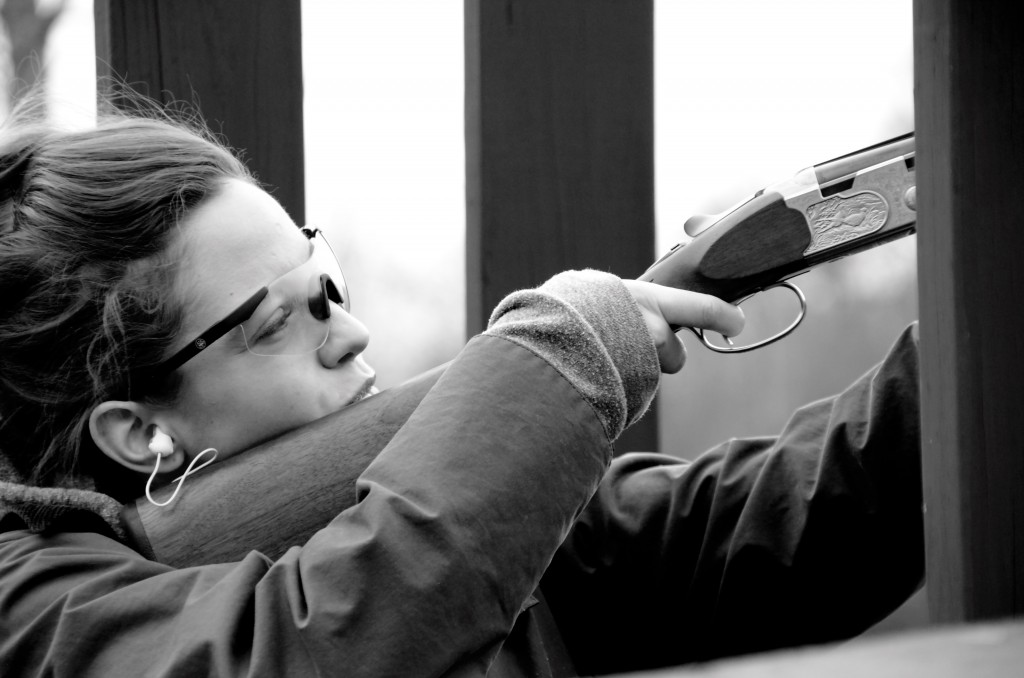
If I had never visited Blackberry Farm and shot their amazing Beretta guns, I would have never met my great friend, Andrew Campbell. As you know through previous posts {click here to read!}, once I returned to NYC from this spectacular place in the Smokey Mountains, I marched right on up to the Beretta store’s gun section and requested to learn more about their exquisite hand crafted guns. By the time I’d left, the tutorial had led to a fashion show of me sporting around their latest equipment and creating new friendships with their team! Hola.
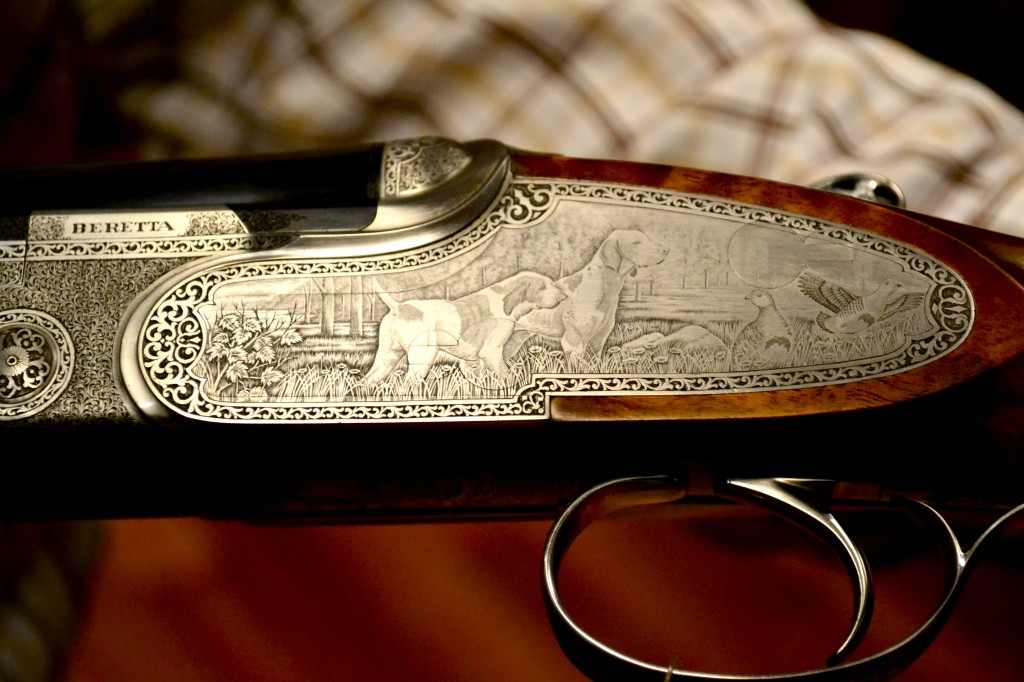
One of Beretta’s representatives, Andrew Campbell, saw my eye wandering over to a book labeled Pointing Dogs, and asked if I liked the hounds. I responded with a quick, “Well, I love Pointers!” Andrew proceeded to tell me more and more about how he is involved with sporting events revolving around these great gundogs, and mentioned there were a few coming up this Spring! When he mentioned a Pointer post would be a great addition to B+H I thought, “how cool?!” Well y’all, he didn’t let me down!
Without further ado, Mr. Andrew Campbell…
Inspired by her post on expanding her circle of passions after her trip to Blackberry Farms and in the spirit of alerting other Southern transplants that the great American sport of field trialing is very much alive and well here in the northeast, Elizabeth asked if I would write about our club’s most recent field trial.
To start, there are a wide variety of dog trials {for herding dogs and retrievers, for terriers and other earth dogs}, but this post is about the beauty of that frozen moment when a pointing dog locates a game bird and transforms all its fluid, kinetic energy into a statue. In the United States, there are two pointing dog registries – the older being the Field Dog Stud Book maintained by the American Field, the younger and broader in scope being the American Kennel Club. While open to all sporting dog breeds, the vast majority of the dogs registered with the American Field are {English} pointers and English setters: the term ‘English pointer’ is a misnomer, but I use it to help distinguish that breed from the versatile Continental breeds of pointing dog that Craig Koshyk has beautifully illustrated in his new book. Kennel Club trials generally attract a broader representation of the pointing breeds: our recent Connecticut Valley Vizsla Club trial had Weimaraners, Gordon setters, German Shorthair Pointers, and Vizslas entered. All the dog pictures incidentally are courtesy of Dave Margolin.
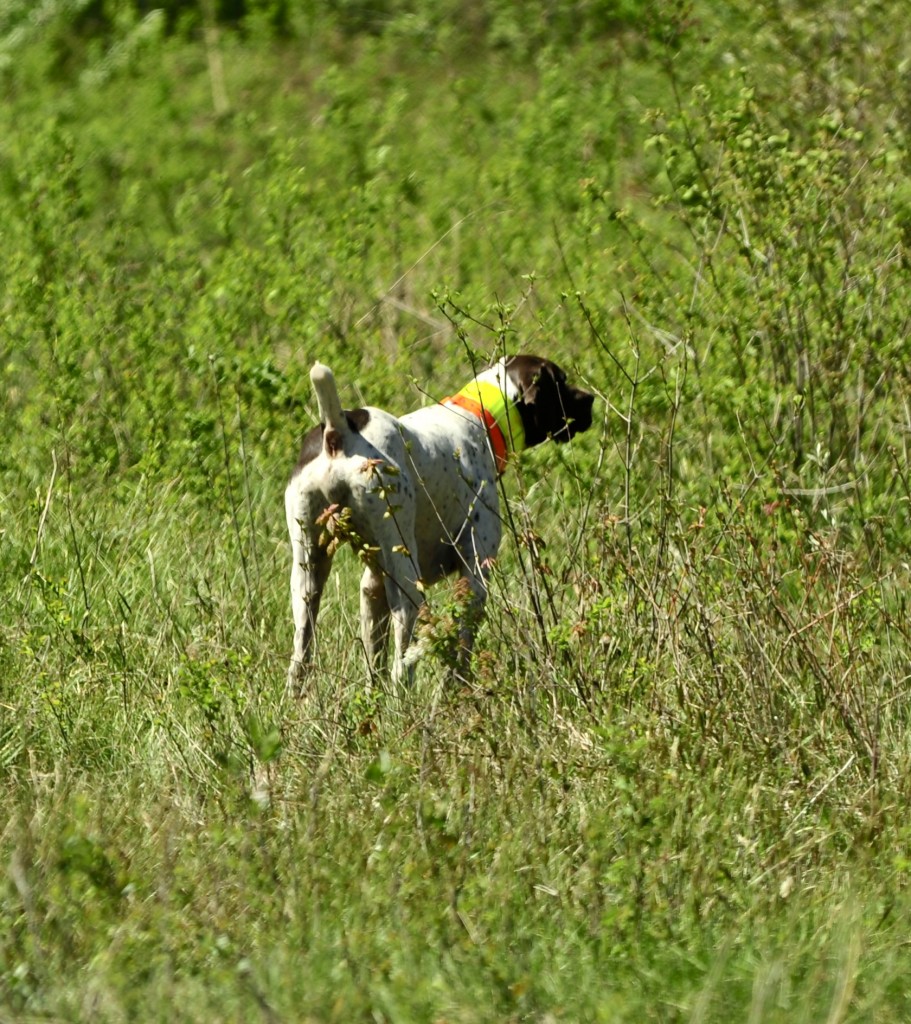
The sport of field trialing, though, is a peculiarly American sport – or put a different way, while other countries host events called ‘field trials’ they look very little like those here in the United States. And it has an especially Southern twist to it. The first National Championship was held in 1896 in West Point, MS, but has been held on the grounds of the Ames Plantation in Grand Junction, TN, since 1915; Grand Junction is also home to the Bird Dog Hall of Fame and Museum. I was lucky to visit both places this past summer on the way back from training dogs out in Arizona – and it felt pretty inspiring to stand on the back steps of the plantation’s main house where almost 100 years of National Champions have been named and posed.

In their purpose, field trials might be described as the means to identify the best likely breeding stock for future generations; in their practice, they might be described as an exercise in high-speed game bird location where the dogs are expected to range hard and far in their pursuit of likely covers that might harbor quail and to freeze and stand immobile till their handler arrives, flushes the birds, and fires a starter pistol. There are certainly some trials which are held expressly on wild birds such as ruffed grouse, woodcock, or sharptails – but due to the increasing pressure on wild bird populations and habitats, the majority of weekend trials are held on planted bobwhite quail. And while some stakes {or even an entire trial} might be designated as ‘walking’ {where the handler handles his or her dog from foot}, the majority of stakes are still horseback stakes where the handler handles his or her dog from horseback, singing it out further in encouragement, and dismounting only to flush the birds the dog has pointed. In the vast majority of stakes, no birds are actually killed and in that regard, field trials are “a means of enjoying the great out-of-door sport of bird hunting in the most aesthetic fashion” as William Brown wrote in The Field Trial Primer from 1934; my emphasis.
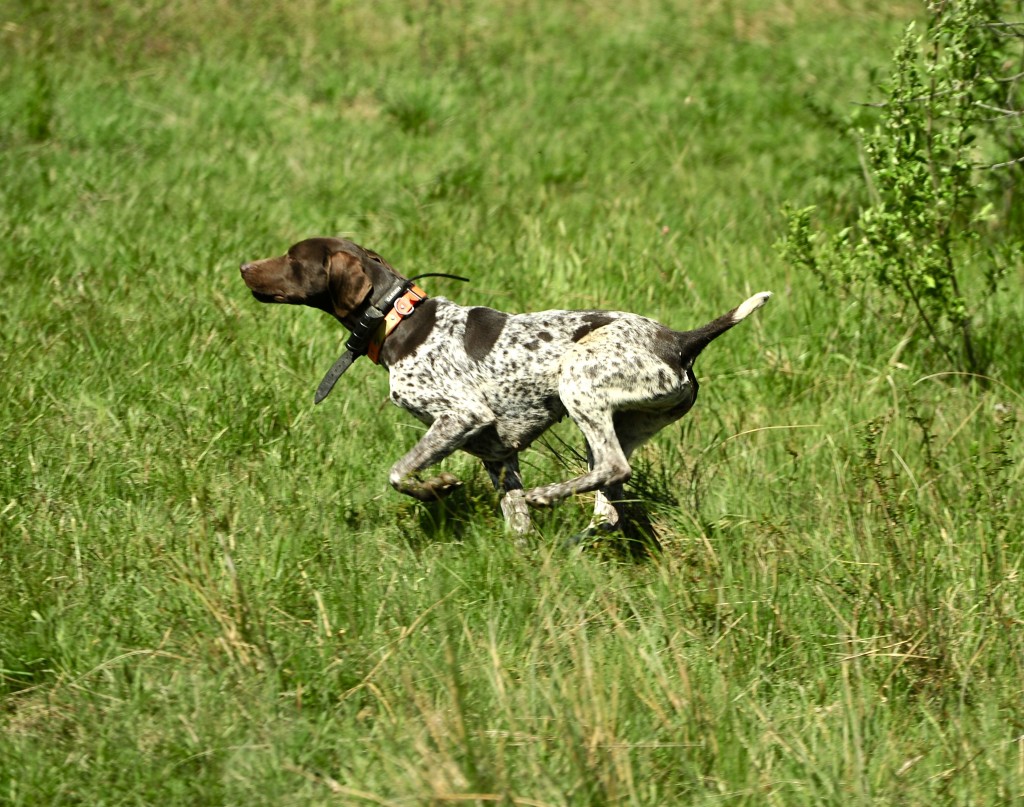
As the publication date of Brown’s book might indicate, the period between the two World Wars were perhaps the golden years of field trialing – and the Flaherty Field Trial Area in East Windsor, CT, where our club’s recent trial was held dates from that same period, too. The grounds were originally farmland and tobacco fields and known by the familiar name, Pelton’s Pasture; the first trial being held there in 1933. Distinctive Connecticut River Valley tobacco barns can still be found all around the area – and one section of the course is still commonly referred to as Tobacco Row. After several years of leasing, ownership of the grounds was transferred to the State of Connecticut in 1947 and at a shade over 500acres, Flaherty remains the largest of the four field trial areas in the state.
Generally speaking, trials will have both open and amateur stakes {ie. ‘open’ to amateur and professional handlers}, as well as adult and juvenile stakes. The American Kennel Club and the American Field have slightly different methods of determining juvenile eligibility, but under AKC rules, for example, a dog is eligible for Puppy stakes until it is 15mos old and eligible for Derby stakes until it is 2yrs old. In the juvenile stakes, young dogs are being judged on their potential as trial dogs; in the adult stakes, dogs are expected to do everything from point birds and then stand motionless while the birds are flushed and they are then moved on by their handlers, to stop and honor another dog’s point if they encounter their bracemate already stopped on a bird, and in the case of the Continental ‘versatile’ breeds they are also expected to retrieve to hand.
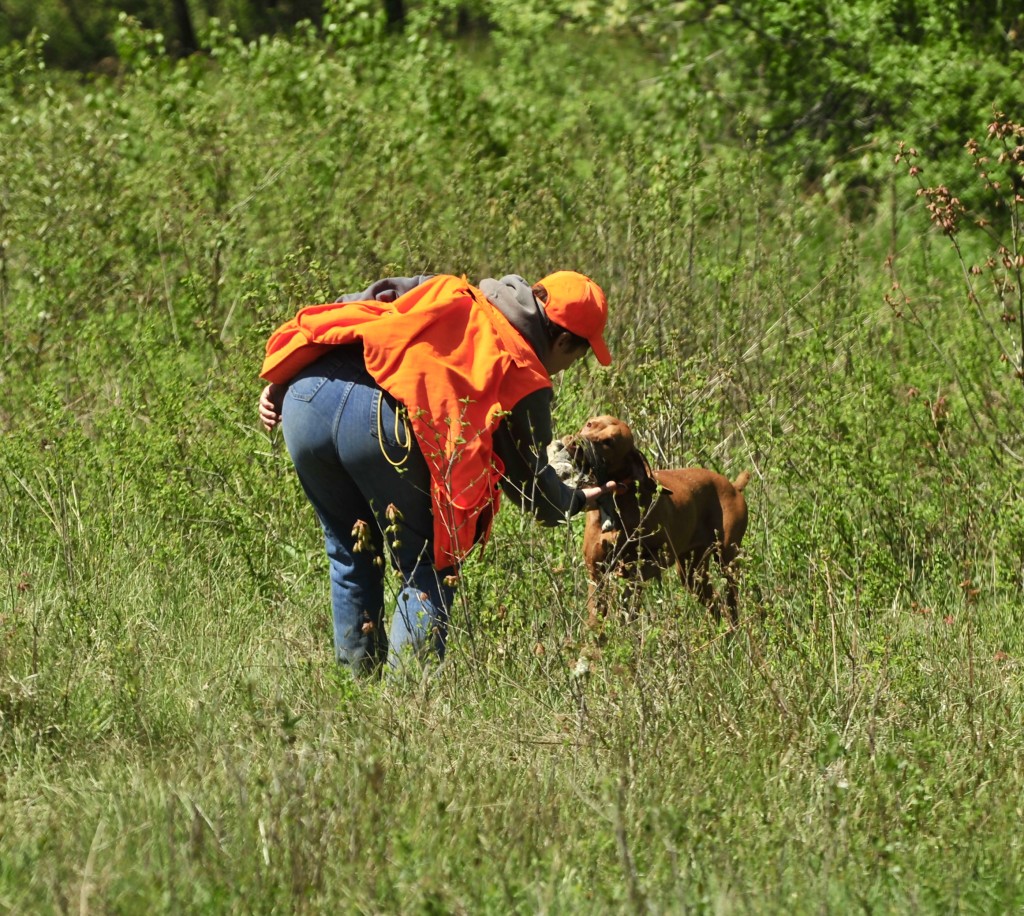
For readers interested in finding out more about field trialing here in the northeast, they can find on-line listings of upcoming AKC events by going here to their Events page and using the drop down menus to narrow the search criteria. Although interested spectators should check with each host club, there is generally a horse wrangler at most trials who can rent you a horse for a brace or even the whole day. While these are mostly gaited horses {like Tennessee Walkers or Missouri Fox Trotters} that are accustomed to the hullabaloo of a field trial, I would encourage folks to have some experience on a horse before just showing up blind. For folks interested in catching American Field events, I would suggest going to the AFTCA Region 1 website for event information. Bonjour + Hola readers are also always welcome to contact me through this site.
As a way of closing and in an effort to convey the excitement of the sport of field trialing, the following quote comes from a New York Times article written to accompany the 2010 National Championship at Ames:
“I told the old gentleman who started me in this sport 40 years ago that it probably would have been better to give me a gram of cocaine because then I could have done my time in prison,” said Larry Garner, an amateur bird dog field trialer from Dallas. “I could have gone through rehab and become a productive citizen again instead of being addicted to bird dogs and chasing them all over the United States and Canada.”

After reading Andrew’s post, I’ve fallen even more in love with these fascinating gundogs! Who says a Southern Belle can’t be a beauty…and love shooting guns and excellent Pointer hounds? Hola. Pointer Twang 101!










Post a Comment